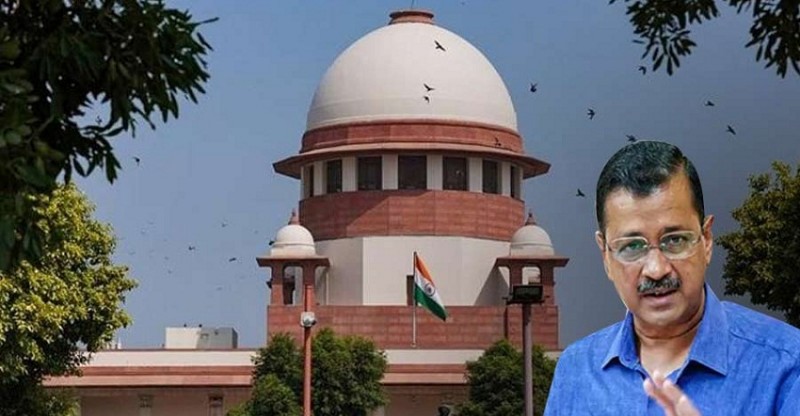
Delhi Chief Minister Arvind Kejriwal received bail from the Supreme Court of India on July 12 in a case linked to alleged money laundering associated with the Delhi Liquor Policy. Despite this interim relief, Kejriwal remains incarcerated due to another case filed by the Central Bureau of Investigation (CBI) related to the same policy.
The Supreme Court, presided over by Justices Sanjiv Khanna and Dipankar Datta, granted bail to Kejriwal but deferred his release pending proceedings in the CBI case. The court also referred Kejriwal's plea challenging his arrest by the Enforcement Directorate (ED) to a larger bench for further consideration.
The legal issue at hand revolves around interpreting Section 19 of the Prevention of Money Laundering Act (PMLA), particularly whether the necessity of arrest should be a precondition. Kejriwal's continued detention stems from his arrest by the CBI under the Prevention of Corruption Act on June 25, connected to the Delhi Liquor Policy.
The complexity of legal proceedings underscores the challenges in resolving Kejriwal's status, despite judicial interventions aimed at addressing legal nuances and ensuring fair proceedings.
Supreme Court Verdict on Kejriwal's Bail: Key Points Explained
Tags: Supreme Court, Arvind Kejriwal, bail verdict, Delhi CM, legal proceedings, doctrine of proportionality, arrest policy
The Supreme Court of India has issued a verdict on Delhi Chief Minister Arvind Kejriwal's bail, outlining several crucial points.
Justice Khanna stated that Kejriwal has been in custody for over 90 days and directed that he be released on Interim Bail.
The Supreme Court emphasized Kejriwal's status as an elected leader, affirming that it is his decision whether to continue serving as Delhi CM, despite the ongoing legal proceedings.
"We have clearly stated that mere interrogation does not justify arrest," the Supreme Court asserted.
Regarding the doctrine of proportionality, the Court referred the matter to a larger bench, framing three specific questions related to the policy and basis of arrest.
Justice Khanna elaborated during the verdict, stating, "Whether the necessity of arrest pertains to meeting formal arrest parameters."
This landmark decision highlights key legal principles and implications surrounding Kejriwal's bail, aiming to clarify and uphold justice amidst ongoing legal debates.
Delhi Court Extends Bibhav Kumar's Judicial Custody in Swati Maliwal Assault Case
Delhi HC Issues Notice to CBI on Kejriwal's Bail Plea in Excise Policy Case, Hearing Set for July 17